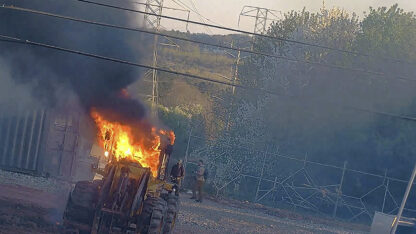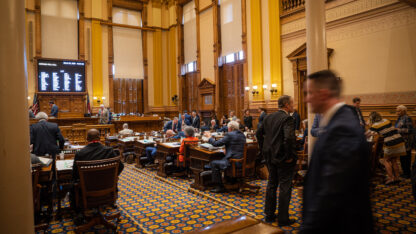Following more domestic terrorism arrests, protesters plan week of action in South River Forest
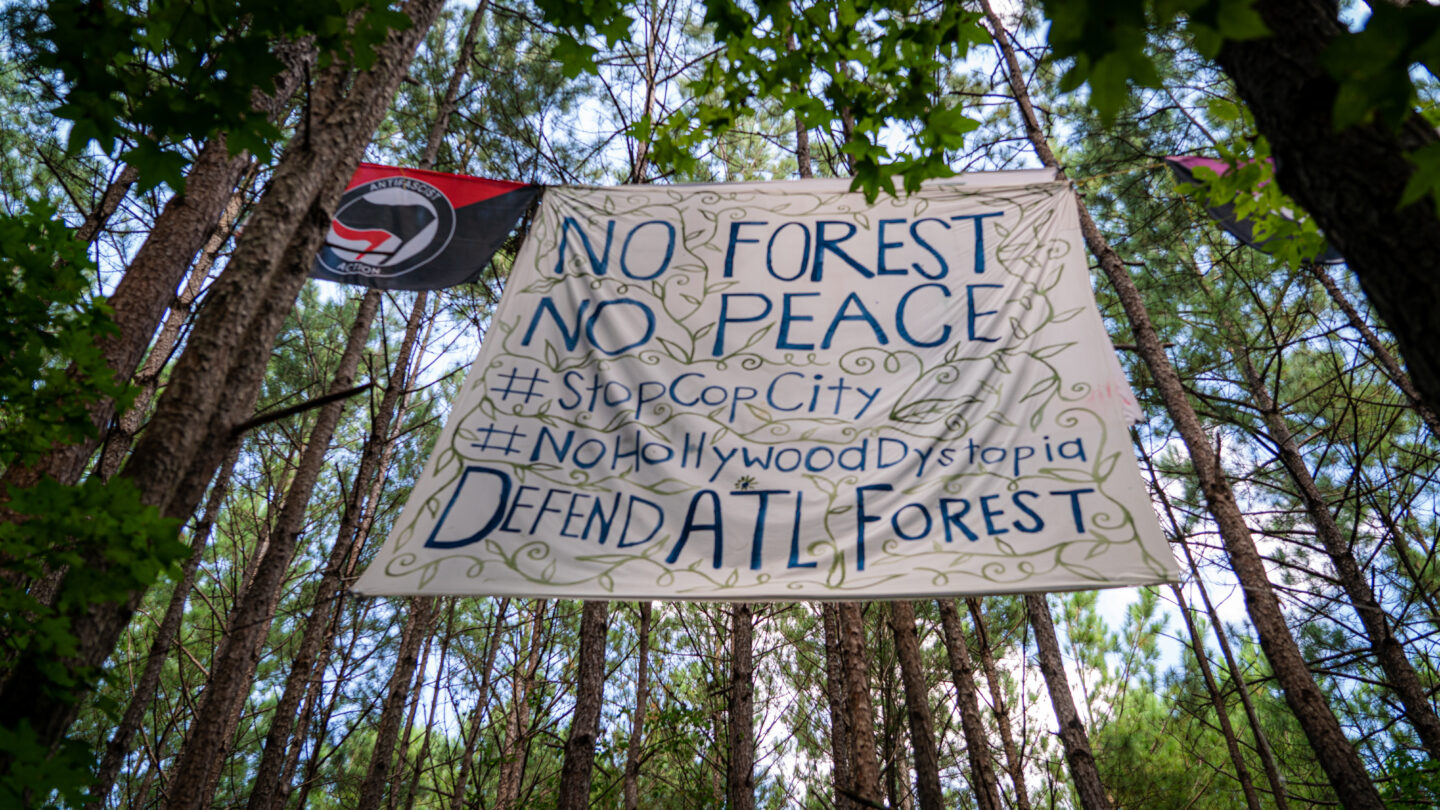
In the South River Forest, a week of action continues as protesters organize against Atlanta’s planned public safety training facility.
More protesters were arrested over the weekend at the construction site and charged with domestic terrorism. Arrest reports stated protesters attacked police officers and set fire to construction vehicles.
The domestic terrorism charges from both DeKalb and Fulton Counties are a rare move. Advocates say such charges are an outsized punishment for protesting and could dampen protests across the country if they succeed.
On Monday, Atlanta Police Chief Darin Schierbaum told Atlanta City Council members there has been a marked increase in aggression.
“It generally had been setting property on fire,” he said. “We’d seen police cars set on fire… but this started as an attack against individuals, men and women who are employees of the city.”
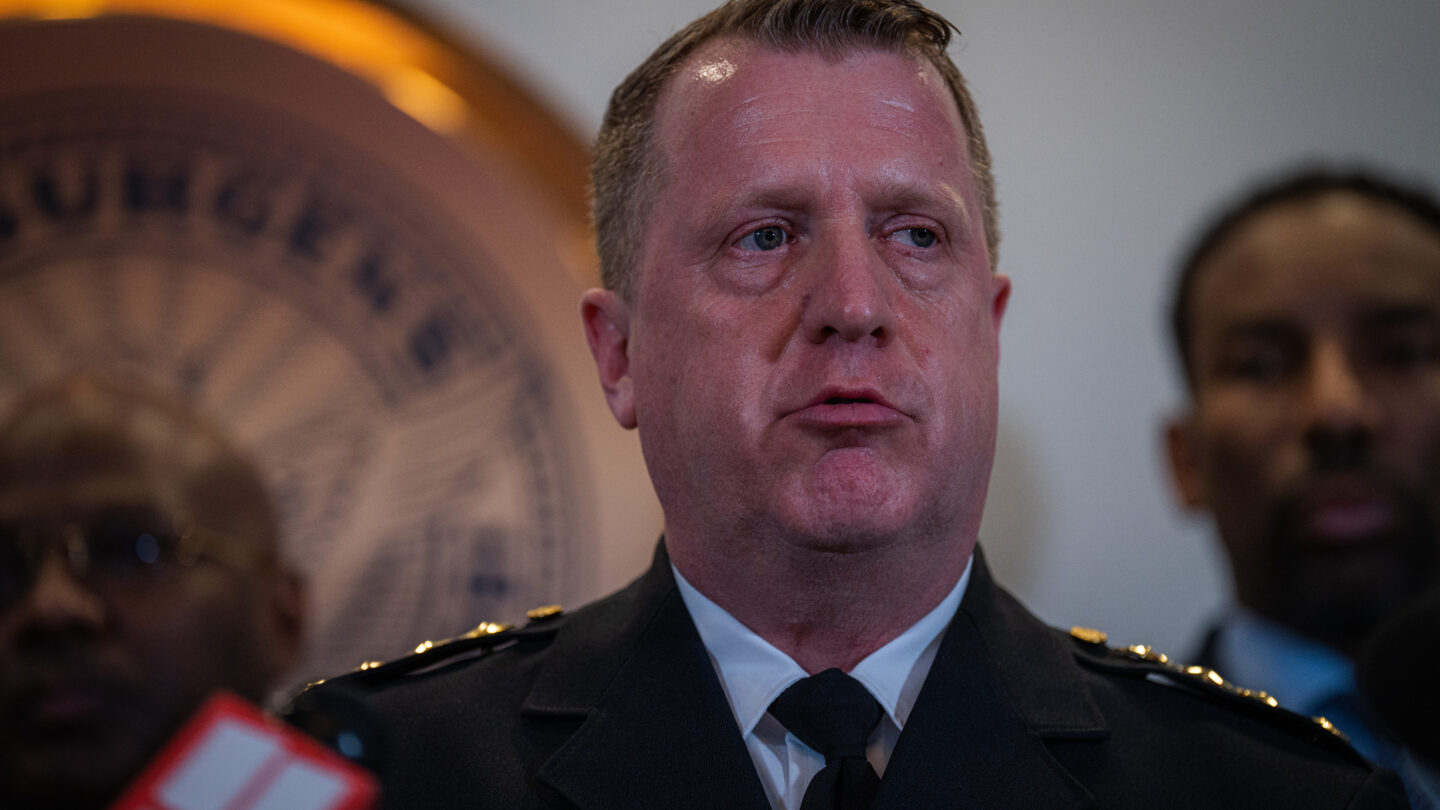
These protests have been happening for over a year in the forest where the 85-acre, police and fire training facility — dubbed “Cop City” — is slated to be built at a cost of $90 million. In January, during a clearing operation, law enforcement shot and killed a protester after an officer was shot.
In raids over the past several months, nearly 50 people have been arrested and charged for domestic terrorism. According to records obtained by WABE, these are the first and only cases of domestic terrorism in DeKalb County. Fulton County courts say they do not keep records of how many cases of domestic terrorism have happened.
Warrants name protesters’ affiliation with the Defend the Atlanta Forest movement as a reason.
Activist Jasmine Burnett with Community Movement Builders has been part of the protests. She said the charges are a scare tactic.
“Slapping them with domestic terrorism is also an attempt to warn other people who are organizing against it, other activists, to be careful and to be scared in a way. To try to silence our movement.”

Marlon Kautz, who works with the Atlanta Solidarity Fund to help people arrested while protesting, said the organization has never seen anything like this before.
“Honestly, I never really thought that I would see anything like this in Atlanta,” he said, “a city which kind of prides itself on its legacy of civil rights.”
Georgia’s Republican Attorney General Chris Carr tweeted he intends to prosecute the protesters to the full extent of the domestic terrorism law. He did not respond to a request for comment.
But experts say the legal definition of domestic terrorism in Georgia is quite broad.
Caren Morrison, a law professor at Georgia State University, said the statute language includes the language “alter, change or coerce the policy of the government.”
“Obviously, if you’re protesting, your hope is that you will alter or change the policy of the government because you’re trying to express your disagreement with it,” she said.
Typically, violent protesters receive various misdemeanor convictions that have fines or only a year of jail time. A felony conviction of domestic terrorism can land someone up to 35 years in prison.
“It’s going to be very hard to get anybody to want to protest anything in Georgia or, indeed, in any other state where this kind of use of the criminal law is used,” Morrison said. “This is definitely the criminal law as a cudgel as opposed to, you know, upholding the rule of law or something. It seems way out of proportion.”
There’s been a lot of nonviolent opposition to the training facility, especially from environmentalists who’d hoped the largest forest in metro Atlanta would remain undisturbed.
One of them is Jackie Echols with the South River Watershed Alliance, who showed me around the forest last year. We stood next to Intrenchment Creek, which bubbled from recent rainfall, as she told me about the wildlife and tree canopy in the area.
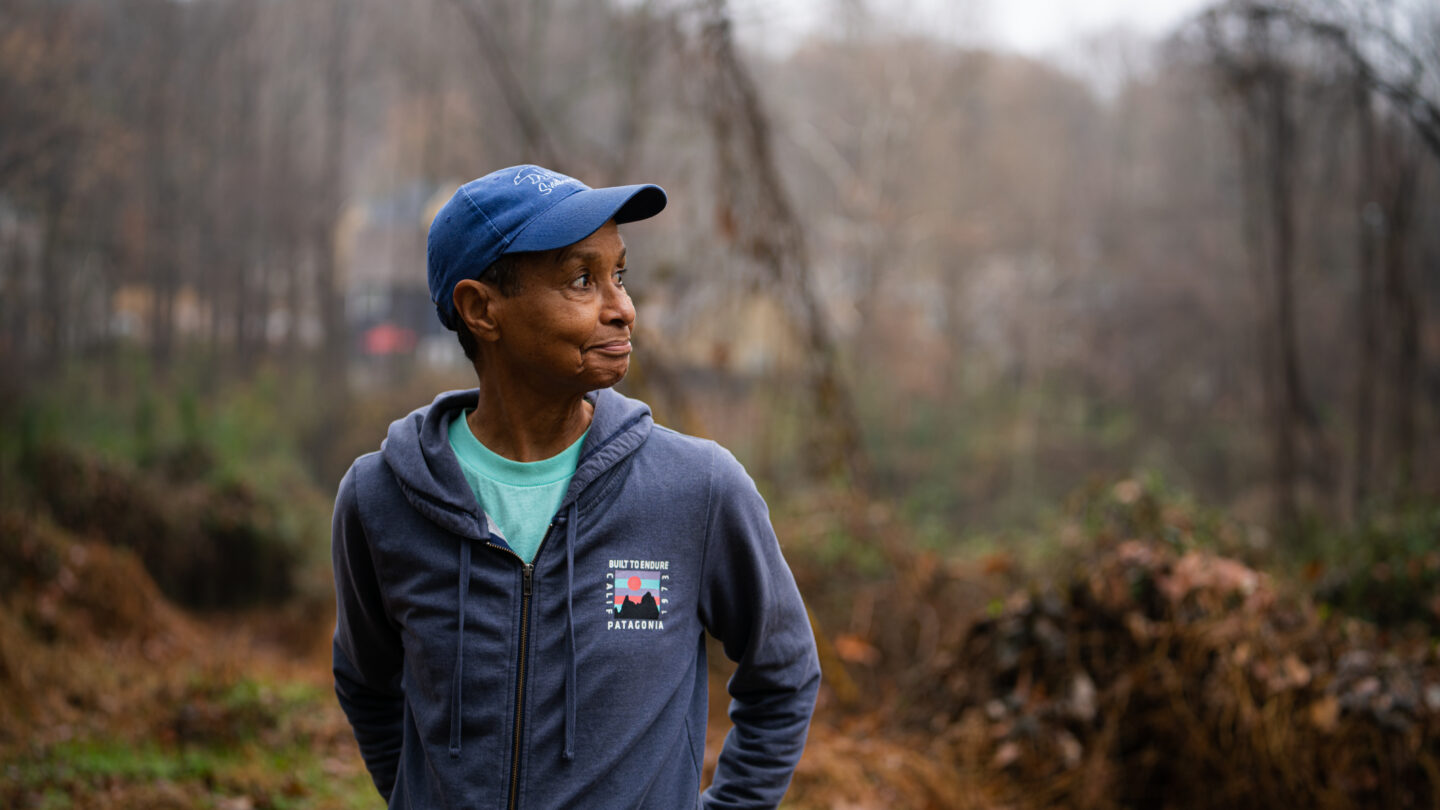
“Why do they want to build on the biggest contiguous piece of green space left?” Echols asked. “Why would they want to do that? Once it’s gone, there’s nothing left.”
Echols and others heavily lobbied Atlanta City Council members against the training center, but they lost.
Atlanta Mayor Andre Dickens said it’s needed to help fill nearly 450 police vacancies and attract new officers with state-of-the-art training in things like de-escalation techniques, community-oriented policing, and mental health.
Meanwhile, some environmental groups are looking for ways to preserve greenspace around the police training campus with a series of parks and forest trails.
As for the construction of the training facility, the county issued the first permits needed to start the project, and land clearing began this year.
